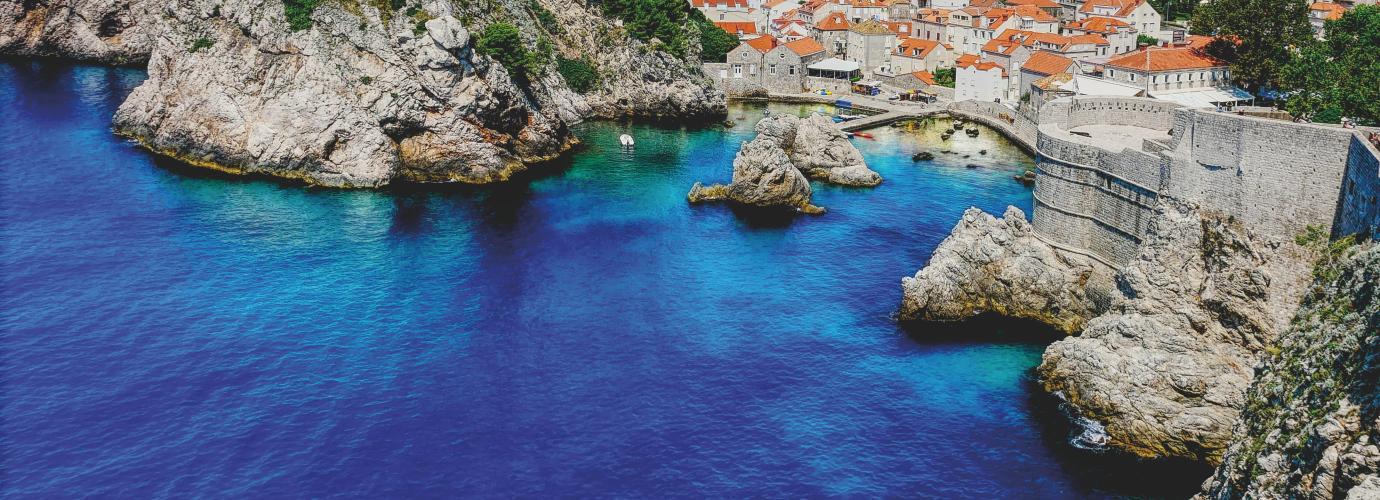Pre-primary education in the language and script of the national minorities
Education in the language and script of the national minorities is organised in accordance with the Act on Education in the Language and Script of the National Minorities as well as with the State Pedagogical Standard of Early Childhood Education and Care.
Pre-primary educational programmes may be organised in the language and script of the national minorities or may be bilingual, and are implemented in the educational groups of a particular national minority in kindergartens and pre-primary educational institutions established for children belonging to national minorities.
Bilingual programmes are implemented in both the Croatian language and the mother tongue of a national minority.
In each educational group, at least 10 hours a week of the pre-primary educational programme in the language and script of a national minority must be performed in Croatian.
Religious education in pre-primary educational institutions
Religious education of preschool children in pre-primary educational institutions can be organised under the provisions of the Act on Preschool Education and Care and the Agreement on Catholic Religious Education in Public Schools and Religious Training in Public Preschool Institutions, the latter of which has been in force as of 29 January 1999. Religious education encompasses 19 700 (12.9 %) preschool children (whose parents or guardians decided on their behalf to include them in the programme) of the total of 152 284 (64 %) children who participate in pre-primary educational programmes in Croatia. There are 50 kindergartens founded by religious communities: 48 have been established by the Catholic Church, one is Protestant and one is Jewish.
Educational programmes for children with health problems
Preschool educational programmes can be carried out as shorter programmes (playgroups) for children of early and preschool age within libraries, healthcare settings, social care settings, cultural and sports institutions, organisations and other legal and physical entities.
Six programmes for preschool-aged children with health problems have been established in Zagreb, Sisak, Zadar and Rijeka within hospitals, through partnerships between kindergartens and the hospitals.
Programmes for children with particular health problems entail certain important tasks, namely:
- creating a positive socioemotional environment (i.e. an educational environment that meets children’s needs under specific hospital conditions);
- along with motor skills and cognitive development, influencing all other fields of development whose significance increases as the child grows up, thus establishing a balance between a child’s needs and abilities;
- in an appropriate and timely manner, acknowledging and meeting personal needs by supporting the development of self-confidence and self-respect through strengthening social skills;
- taking into account the specificities of children’s ages, health conditions and individual needs;
- contributing to meeting children’s needs for communication skills, helping them to acquire new knowledge and creative skills, through appropriate contents;
- enabling family members to be present and participate during the work with children.
Alternative programmes and kindergartens
Montessori pedagogy
In Croatia, there are five kindergartens that implement educational programmes with preschool children following only the Montessori principles and pedagogical approach. Montessori programmes are also implemented in 11 standard kindergartens. The approach of Maria Montessori, today as it was a hundred years ago, is to carefully observe a child in order to assess their personal needs. She was aware that the child’s needs change along with the changes in society. She thought that the most important thing was to be aware of these changes and enable the child to face them. The golden rule has remained the same – keep observing, listening, protecting and stimulating a safe family community full of love – no matter to what extent these communities differ from family to family and in different periods of time. That rule remains the starting point.
Waldorf pedagogy
Waldorf pedagogy is an education system based on the anthroposophic principles of Rudolf Steiner. In the daily, weekly and annual rhythms, various activities take place: playing, eating, resting, art and working. The toys, furniture and didactic materials are of natural origin, shaped and coloured so as to provide mild and nuanced stimuli for healthy development of the senses. In this way, a deep understanding of ecology is nurtured. All the activities and content are aimed at developing active, non-violent and creative play, stemming from within the child. Such games correspond to serious and creative work in the adult world, and help children to become free human beings. In Croatia, the Waldorf pedagogy is implemented in 14 kindergartens in five cities.
Agazzi pedagogy
This method was created as a result of the research and educational work of the Agazzi sisters, Rosa and Carolina, and their teacher Pietro Pasquali, and the sociocultural context in which they worked, at the end of the 19th century. The basic feature of the Agazzi pedagogy is that it places the child in the centre and that kindergarten is an organisation of children’s activities. The main value of the Agazzi psychology is the development of the relationship between the child and the educator in a special way: the relationship is borne from the first encounter with the child in the context of living with others, playing, working, speaking and acting on their own. The Zraka Sunca kindergarten in Križevci follows the principles of the pedagogy of the community of the Agazzi sisters, founded by Chiara Lubich.

